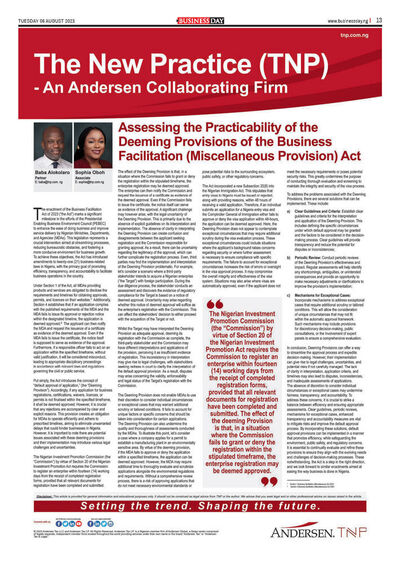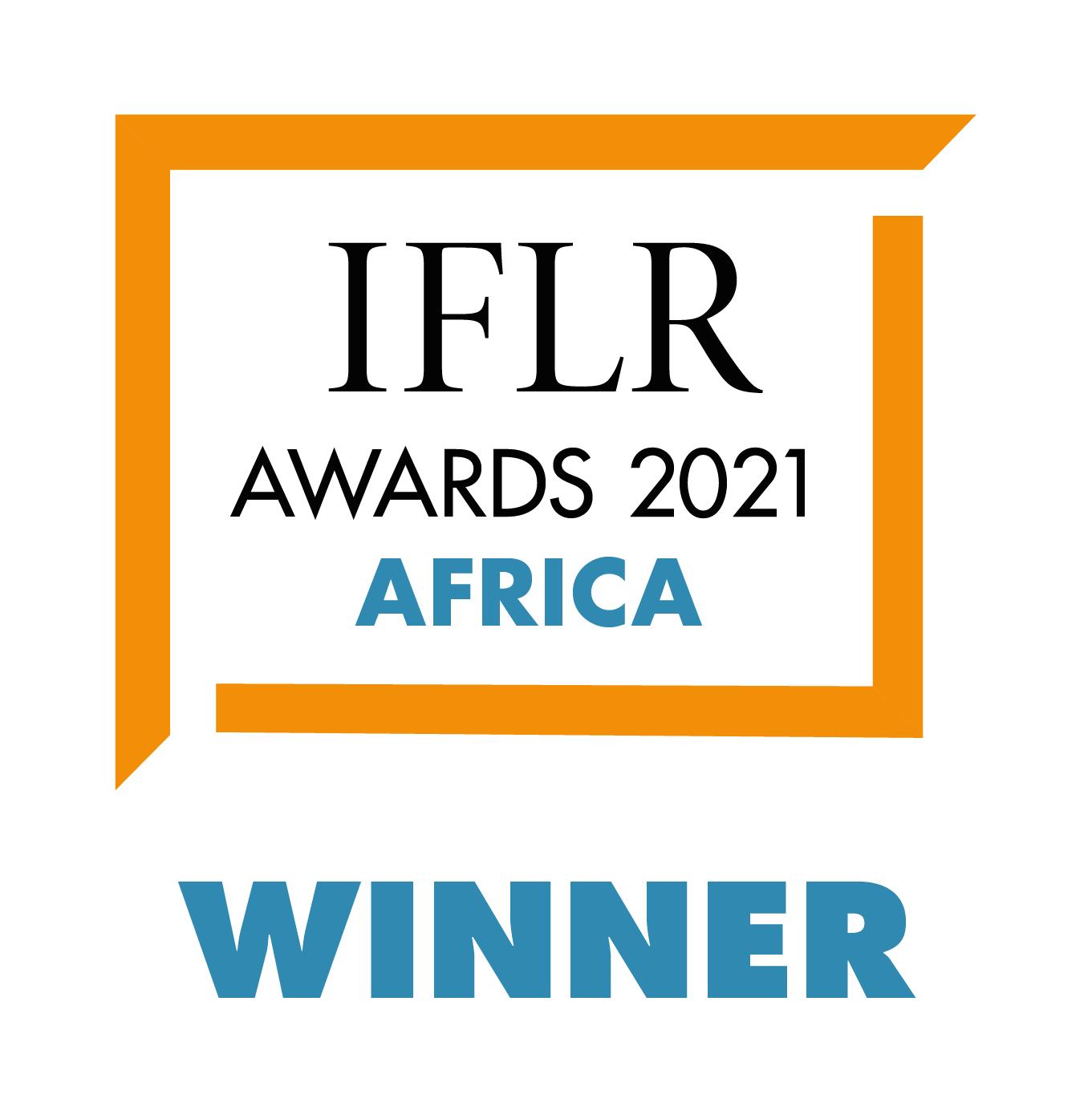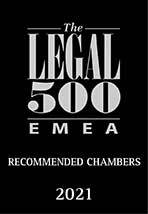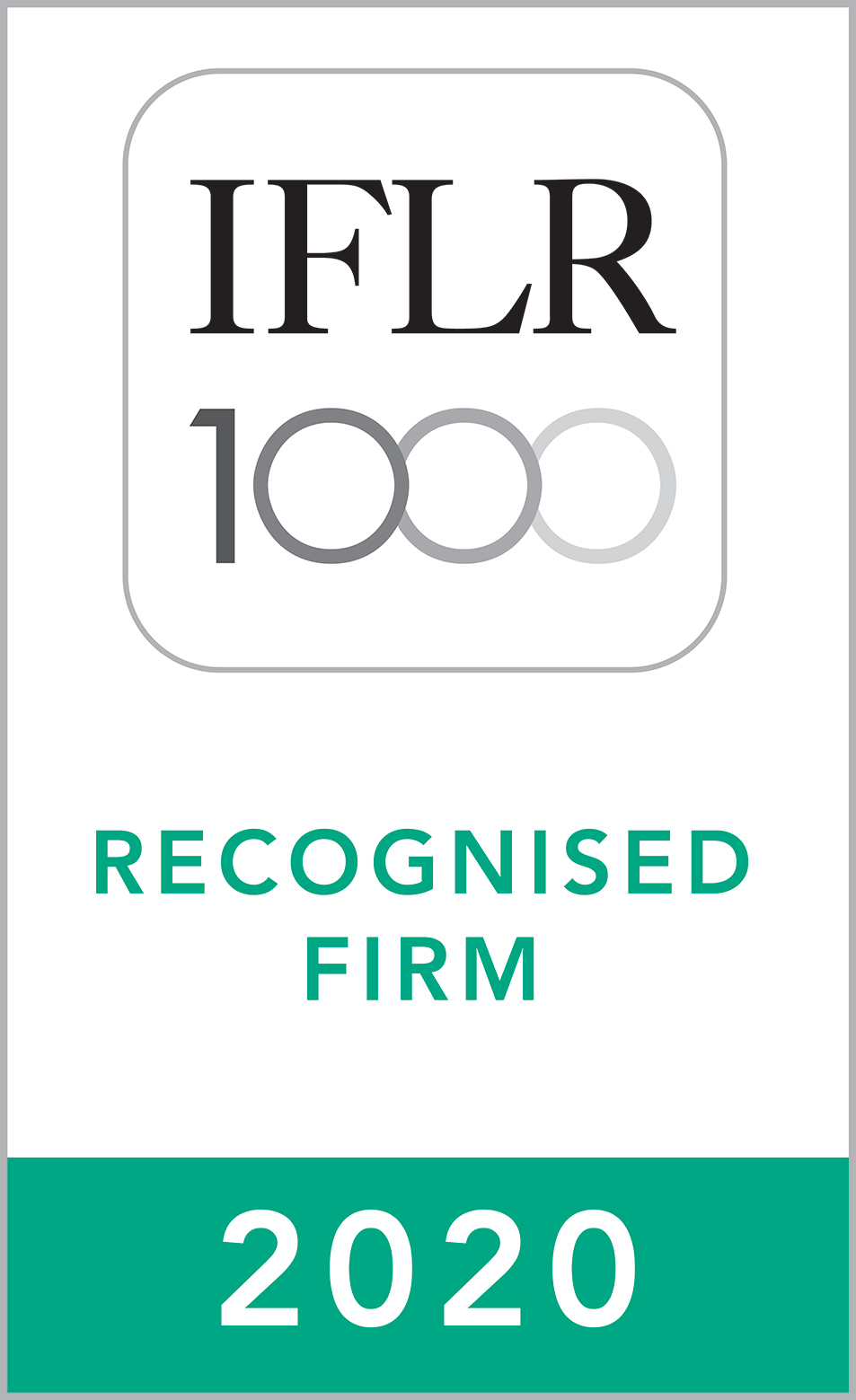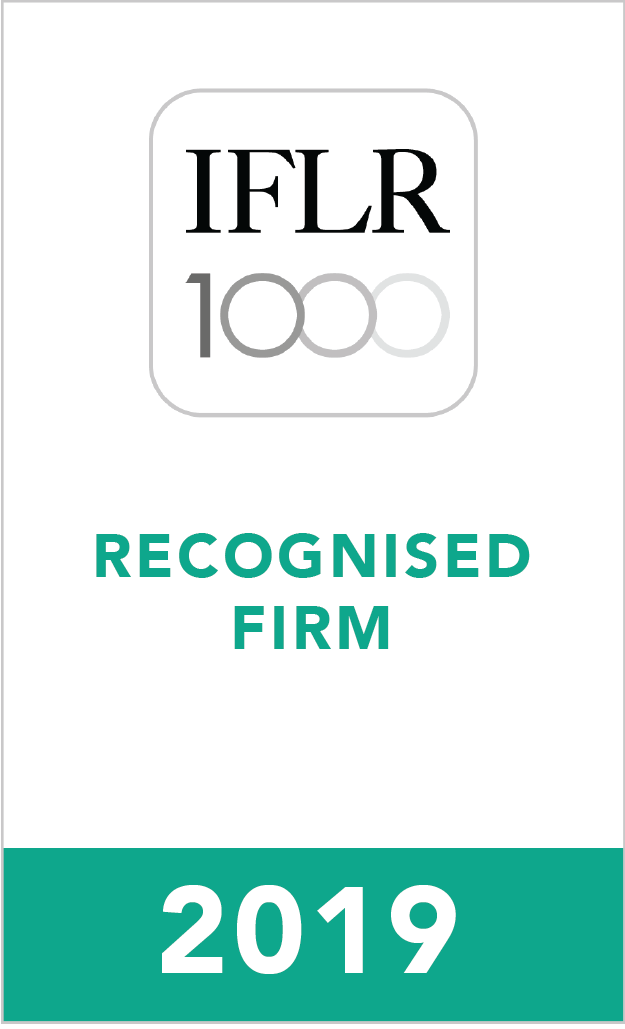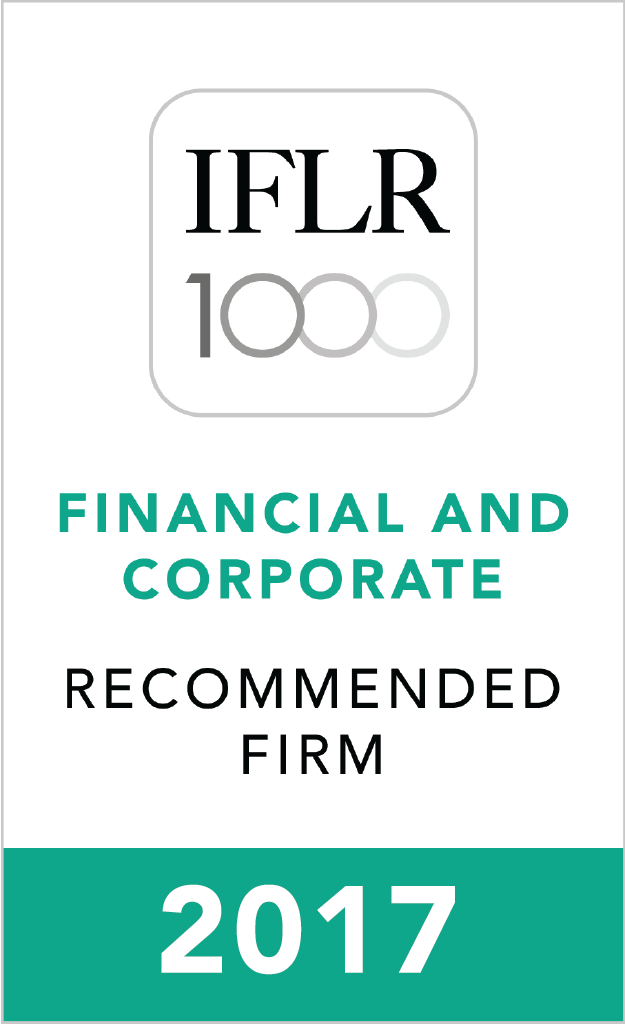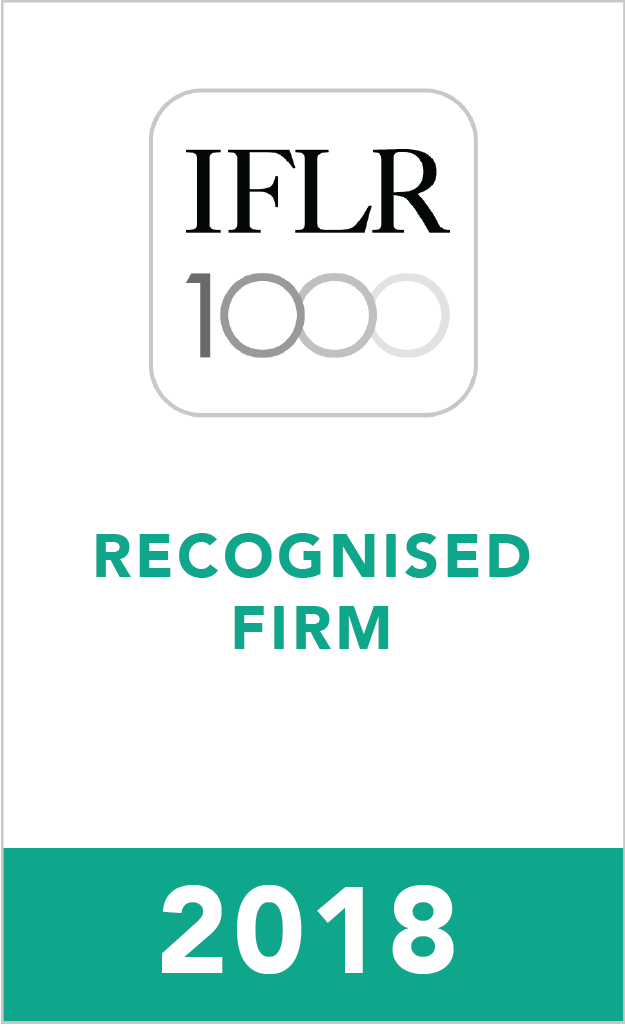The enactment of the Business Facilitation Act of 2023 (“the Act”) marks a significant milestone in the efforts of the Presidential Enabling Business Environment Council (PEBEC) to enhance the ease of doing business and improve service delivery by Nigerian Ministries, Departments and Agencies (MDAs). This legislation represents a crucial intervention aimed at streamlining processes, reducing bureaucratic obstacles, and fostering a more conducive environment for business growth. To achieve these objectives, the Act has introduced amendments to twenty-one (21) business-related laws in Nigeria, with the primary goal of promoting efficiency, transparency and accountability to facilitate business operations in the country.
Under Section 1 of the Act, all MDAs providing products and services are obligated to disclose the requirements and timelines for obtaining approvals, permits, and licences on their websites.’ Additionally, Section 4 establishes that if an application complies with the published requirements of the MDA and the MDA fails to issue its approval or rejection notice within the designated timeline, the application is deemed approved.? The applicant can then notify the MDA and request the issuance of a certificate as evidence of the deemed approval. Even if the MDA fails to issue the certificate, the notice itself is supposed to serve as evidence of approval.
Furthermore, if a responsible officer fails to act on an application within the specified timeframe, without valid justification, it will be considered misconduct, leading to appropriate disciplinary proceedings in accordance with relevant laws and regulations governing the civil or public service.
Put simply, the Act introduces the concept of “default approval of application,” (the “Deeming Provision”. Accordingly, if any application for business registrations, certifications, waivers, licences, or permits is not finalised within the specified timeframe, it shall be deemed approved. However, it is crucial that any rejections are accompanied by clear and explicit reasons. This provision creates an obligation for MDAs to operate efficiently and adhere to prescribed timelines, aiming to eliminate unwarranted delays that could hinder businesses in Nigeria. However, it is important to note there are potential issues associated with these deeming provisions and their implementation may introduce various legal challenges and uncertainties.
The Nigerian Investment Promotion Commission (the “Commission”) by virtue of Section 20 of the Nigerian Investment Promotion Act requires the Commission to register an enterprise within fourteen (14) working days from the receipt of completed registration forms, provided that all relevant documents for registration have been completed and submitted.
…



